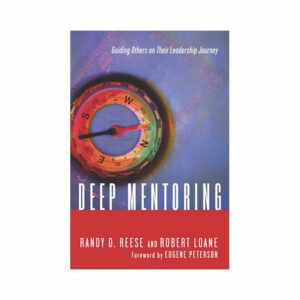Everyone then who hears these words of mine and acts on them will be like the wise man who built his house on the rock. -Jesus (Matthew 7:24).
We face tremendous pressure in our lives today to be spectators of this Jesus. But faithful living has never been a spectator sport. Danish Christian thinker Soren Kierkegaard emphasized this by drawing a contrast between being an admirer and being an imitator. He wrote:
What, then, is the difference between an admirer and an imitator? An imitator is one who strives to be what he admires, and an admirer keeps himself personally detached, consciously or unconsciously does not discover that what is admired involves a claim upon him to be or at least to strive to be what is admired.
We can become settled in our admiration of Jesus and thereby keep his claim on our lives at a safe distance. But Jesus is seeking something far different than mere admirers. Jesus calls us to so appreciate who he is that we turn from our way of life to imitate him. We get out of the stands and onto the field into the action and follow him.
This is, after all, what God is doing in our lives. The Spirit invites and mentors us to move beyond spectatorship and participate in Jesus’ loving way in the world (Eph 3:16-17). And at the heart of this invitation is the person of Jesus. Jesus calls us to follow and learn and imitate just as he did with Peter, Thomas, Mary, and Paul. He has much to teach his 21st-century disciples.
A critical discovery in this apprenticeship with Jesus is that there is no substitute for seeing the gospel lived out by another. Our faith is an imitative faith. No amount of personal Bible study or sermons can replace our need to experience up close the gospel incarnated in a person’s life. Or as Timothy Jones observes, “Sometimes we need to see the Christian life lived out, we need to stand in the presence of the genuine article, not just be told about it.”
It is in close relationships that we begin to see how Jesus is active in our everyday lives. In the sadness and celebration, in the beauty and the muddle of our lives, we discover together the Spirit’s mentoring way with us. A trusted relationship, or set of relationships, will be the place where we most often “get out of the stands” and encounter Jesus’ life-changing grace and truth with and among us.
Spiritual companionship is a necessity on the journey because the gospel plays out best in relationships.
Ecologists remind us that a tree planted in a clearing of an old forest will grow more successfully than when it is planted in isolation in an open field. The roots of the new planting will follow more easily and more deeply the hidden pathways of old root systems. Likewise, human beings thrive best in following the paths of life already taken by others before them. None of us needs to reinvent the wheel or live as if no one has preceded us in the pathways of the wise.
James Houston, The Mentored Life
Adapted excerpt from Randy Reese and Robert Loane, Deep Mentoring: Guiding Others on Their Leadership Journey (InterVarsity Press, 2012), pp. 187-188.


